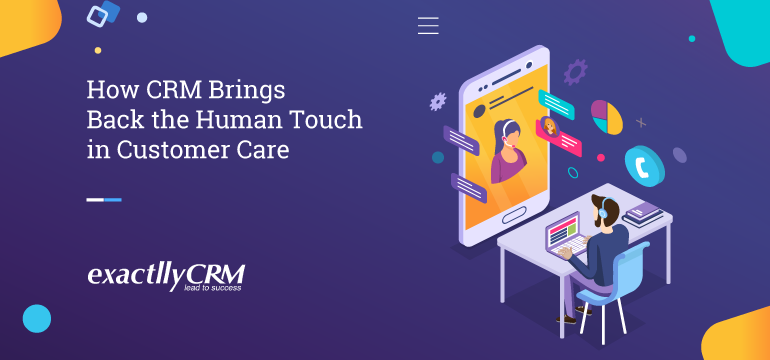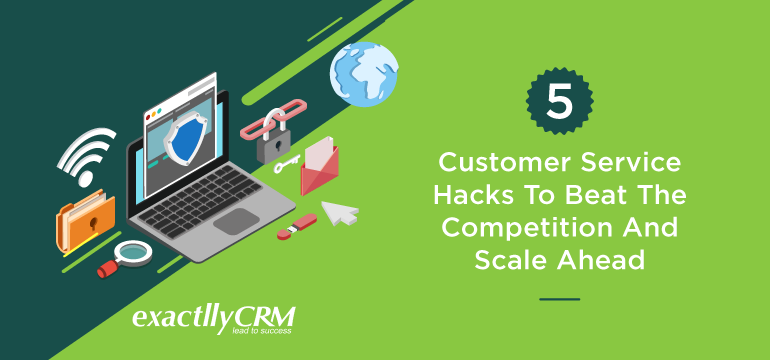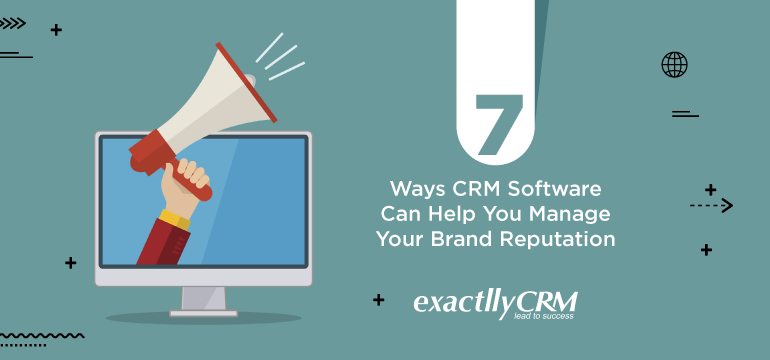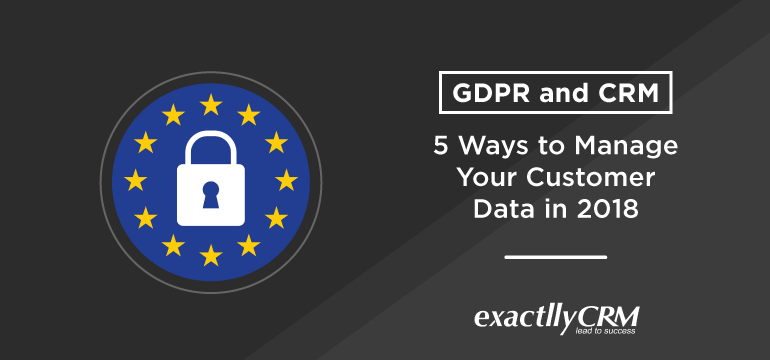How CRM Brings Back the Human Touch in Customer Care

With all the talk about CRM and automation, it is natural to wonder ion automation results in customer alienation. To an extent, it is true. If one relies only on CRM, chatbots and automated messages, you are likely to alienate your customers. In reality, no company would engage in such an extreme level of automation because that is not what either automation or CRM is supposed to do. CRM helps customer service agents and managers to free up their time and engage in real time relationship building with customers. This is usually not possible when they have to engage in manual data entry, data churning and insight generation.
In this article, let us take a look at how CRM helps you bring back the human touch to customer care.
1. Enhances customization
A CRM can help you to customize every aspect of your customer relationship management. Using a CRM helps you to access data that you never dreamed would be able to collate. A CRM tool effectively collects large amounts of various kinds of data and records customer interactions. This helps you to analyze customer data and customize marketing campaigns, customer communication and social media interaction. A customized approach is very crucial to success in today’s times, when competition can get extremely aggressive and every organization is ready to fall over its heels in order to deliver superior customer experience.
2. Better customer insight
One of the reasons why customer service fails is because we understand so little about customers. Insight-driven customer relationship management is the key to a business’ success. Studies show that most businesses blindly strategize without relying on accurate insight. Customers are not homogenous and they wildly and widely differ in their interests, demographics and behavioral aspects. A CRM helps you to understand all these differences and place them in context, so that you are able to derive better insight. With better insight, you can plan your customer service strategy in a manner that helps you improve your customer satisfaction KPIs.
3. More time for building relationships
A CRM helps you to free up valuable time and reduce manual entries. This helps your employees to find more time for other more intensive tasks. As CRM helps to automate a number of customer relationship tasks, they can use this time to build valuable relationships with customers. This can include conducting real-life events, making telephone calls to enquire what customers want, and even interacting and engaging them on social media, without sounding salesy. This is crucial to building credibility and a positive brand image. While your CRM does all the sales-related functions, your staff can build valuable human relationships.
4. Timely resolution of complaints
If you look at how companies are rated online, you will see that it mostly depends on how quickly a business was able to resolve customer complaints. As customer complaints build up on social media and elsewhere, businesses often feel overwhelmed and just give up. They even give up on responding to negative reviews on websites. This hurts their reputation in the long term. A CRM effectively helps businesses to resolve complaints immediately, and improve online ratings. This helps businesses to improve their brand image and overall ratings on social media and elsewhere.
5. Better engagement on social media
Modern CRMs can help you understand your audience better by tracking and following them on social media. You no longer have to do all the hard work by following, analyzing and tracking social media activity your customers. Your CRM can do it for you, while your staff can focus on actual engagement on social platforms. This allows you to implement real-time and honest conversations between your staff and customers, leading to better engagement KPIs. Connecting with your audience on social media in a heartfelt and honest manner is known to enhance not only sales but also brand perception.
6. Make accurate predictions
Your insights are going to be useless if they do not employ some sort of predictive analytics. Predictive analytics help you to make accurate sales forecasts and identify market trends in advance. This helps you take your customization to the next level and ensure that your customers always feel connected with your brand. Accurate predictions can’t be made by human employees and the need for a CRM that is integrated with predictive analytics tools is dire. Interactions and campaigns based on accurate predictions help your staff to make human connections that feel intuitive and natural.
CRM helps unburden your staff
Certainly, relying only on automation and CRM can result in customer alienation. However, you should use CRM to unburden your staff in the customer relationship department, so that they can build real relationships with customers. With better data in their arsenal, your staff will be able to customize messages and interactions with customers. They will also be able to attend to customer complaints quickly and reduce the number of complaints on social media. CRM helps businesses to predict customer outcomes and make adequate changes to policies that will result in positive customer interactions. Finally, CRM gives your staff more time, which results in empathic and genuine conversations between your staff and customers. If you would like to implement CRM now to unburden your staff, contact us today.






